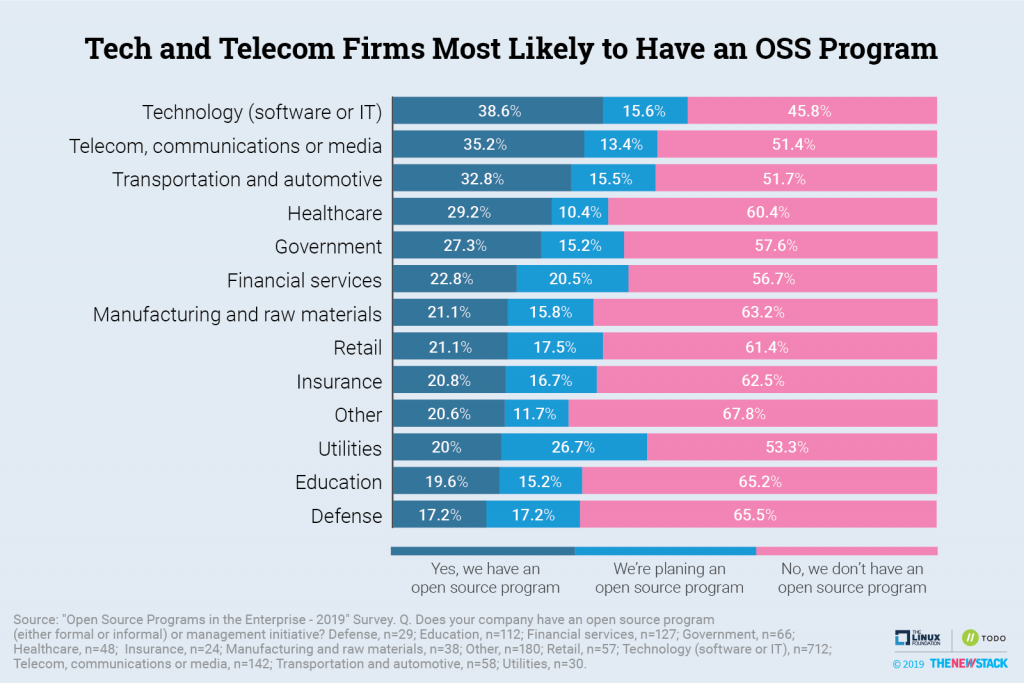Before, I’ve stated how contributing to the open source software that powers your company can make good business sense:
The heartbleed OpenSSL vulnerability in 2014 (effecting Google, Facebook, etc.) exposed another issue: sometimes widely used open source software doesn’t get the love it deserves in terms of monetary and/or code support from those that use it.
If you’re using open source software at your company, then this software could be considered in economics terms as a “complement” to your company’s product, where its availability, quality, and ecosystem directly bolsters it.
Here, Joel Spolsky writes on how smart companies in the past have strategized to further their business interests by supporting and proliferating complements to their products, or otherwise “commoditizing their complements” to great results
The success of open source continues to grow; surveys show that the majority of companies use some form of open source, 99% of enterprises see open source as important, and almost half of developers are contributing back.
It’s important to note that companies aren’t contributing to open source for purely altruistic reasons. Recent research from Harvard shows that open source-contributing companies capture up to 100% more productive value from open source than companies that do not contribute back.
Every company is now a tech company
Thus, in the spirit of software is eating the world and “oops, I guess pretty much every company is a tech company now” (+), TheNewStack.io has released an interesting set of info-graphics on open source usage and contribution rates across various industries:
thenewstack.io/how-open-source-policies-vary-across-industry-verticals/

![]()


